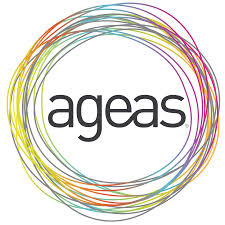Obtaining Chinese visas simplified for foreigners vaccinated with Chinese vaccine and applying in Hong Kong
March 16, 2021 Category ![]() Health, Weekly
Health, Weekly
China has simplified its visa policy for foreigners applying to enter the Chinese mainland via Hong Kong who have received Chinese Covid-19 vaccines. The Office of the Commissioner of the Chinese Ministry of Foreign Affairs in Hong Kong issued a notice on March 12 to exempt foreign visa applicants who have received a Chinese vaccine from providing health certificates. It is seen as a trial for China to explore vaccine visas and hopefully can be expanded to other places, the Global Times reports. According to the new Chinese visa policy, foreign nationals and their family members entering the Chinese mainland to resume work and production need to provide only the documents required before the outbreak of the Covid-19 pandemic and a valid vaccination certificate when applying for a visa. A nucleic acid test and the Health and Travel Record Declaration Form for Visa Application are no longer required. More than 60 countries have authorized the use of Chinese vaccines, Chinese Foreign Ministry Spokesperson Zhao Lijian said at a press conference on March 10. However, foreigners and Chinese citizens entering China still have to submit to a quarantine as it is still not certain that they can’t transmit the virus.
In the near future the measure could be expanded into a mutual recognition program with countries that use Chinese vaccines, for example, many countries in Southeast Asia, Tian Guangqiang, Assistant Research Fellow with the National Institute of International Strategy at the Chinese Academy of Social Sciences, told the Global Times. Finally, people inoculated with Covid-19 vaccines produced by foreign manufactures would also be included. But to reach such mutual recognition, pre-certification issued by the World Health Organization (WHO) would be needed to make different countries trust each others’ vaccines, Tian said. The WHO is expected to recognize the vaccine from Sinovac Biotech by the end of March. Currently the U.S., UK and EU are also considering whether to introduce a digital passport that will allow citizens to show they have been vaccinated against Covid-19.
China has launched a Covid-19 vaccination certificate for its citizens planning cross-border travels, joining other countries issuing similar documents. As vaccines are globally being rolled out, a few countries including Bahrain have already introduced certificates identifying vaccinated people, and the European Union agreed to develop vaccine passports under pressure from tourism-dependent southern countries. The health certificate issued by China will have details about the holder’s Covid-19 vaccination, coronavirus test results and serum antibody results, the Department of Consular Affairs under China’s Foreign Ministry said on its website. The digital certificate is available for Chinese citizens via a program on Chinese messaging application WeChat. The certificate is being rolled out “to help promote world economic recovery and facilitate cross-border travel,” a Foreign Ministry Spokesman said. The certificate, which is also available in paper form, is thought to be the world’s first known “virus passport.” It is not immediately known with which countries China is talking to get its Covid-19 certificate recognized. It is currently only available for use by Chinese citizens and it is not yet mandatory.
A coalition of health and technology companies has launched the Vaccination Credential Initiative to show proof of vaccination. A digital pass called CommonPass is being created by The World Economic Forum, the Commons Project, the Rockefeller Foundation and 350 public and private sector leaders from 52 countries and regions. It is being tested by United Airlines. But the World Health Organization (WHO) expressed practical and ethical concerns over using a vaccination passport as a certificate for international travel. “In terms of technology, I believe that Chinese companies can build an international platform in just one week, but it is better that the WHO, rather than any country or regional organization, be the organizer to ensure the independence, fairness and data security of the platform,” Xiang Ligang, Director General of the Beijing-based Information Consumption Alliance, told the Global Times. The WHO could draft the rules, procedures and data format, while China is very willing to share experience and techniques in setting up such a platform, he said.
China is ramping up efforts to vaccinate 560 million people, or 40% of China’s population, by the end of June, and another 330 million people will be vaccinated by the end of the year, covering 64% of the total population. Beijing city authorities said that from January 1 to March 9 they had administered nearly 8.8 million doses of Covid-19 vaccines on about six million people, around one-third of its permanent resident population. China is aiming to vaccinate 70% to 80% of the population by mid-2022, Gao Fu, Director of the Center for Disease Control said. With four approved vaccines, China will vaccinate 900 million to 1 billion people to achieve herd immunity. A total of 64.98 million Covid-19 vaccine doses have been administered in China, which is a relatively low inoculation rate at 4.6 shots for every 100 people. The number is 32 for the U.S., 66 for the UAE and more than 108 for Israel.
China is to launch the “Spring Seeding Action” initiative to vaccinate Chinese passport holders abroad, either with Chinese or locally-approved Covid-19 vaccines. More than 50 countries already include Chinese nationals in their vaccination plans. Minister of Foreign Affairs Wang Yi said that China is providing vaccines to 69 developing countries for emergency use, and exporting vaccines to 43 countries, adding that China is willing to have discussions with other countries on the mutual recognition of vaccinations. China’s vaccine output could reach 4 billion doses in 2021, which will be enough for a massive inoculation program in China, while at the same time supplying overseas countries.
For domestic travel in China, as from March 16, people can travel freely by train across the country with a green health code and will not need to present a negative nucleic acid test certificate. The Chinese mainland has not seen a single locally transmitted Covid-19 case for more than 27 days after the local cluster outbreaks in Hebei, Heilongjiang and Jilin provinces were successfully brought under control before the Chinese Lunar New Year.
This overview is based on reporting by the China Daily, Shanghai Daily and Global Times.
- KURT VANDEPUTTE (UMICORE) APPOINTED CHAIRMAN OF THE BOARD OF THE FLANDERS-CHINA CHAMBER OF COMMERCE (FCCC)
- Webinar: “Knowing Your Chinese Partner” – May 26, 2021, 10 am – 12 am
- EMA starts rolling review of CoronaVac, WHO approves Sinopharm vaccine for emergency use
- The Global Times warns not to politicize the Comprehensive Agreement on Investment (CAI)
- Hainan to become biggest duty-free market in the world





























